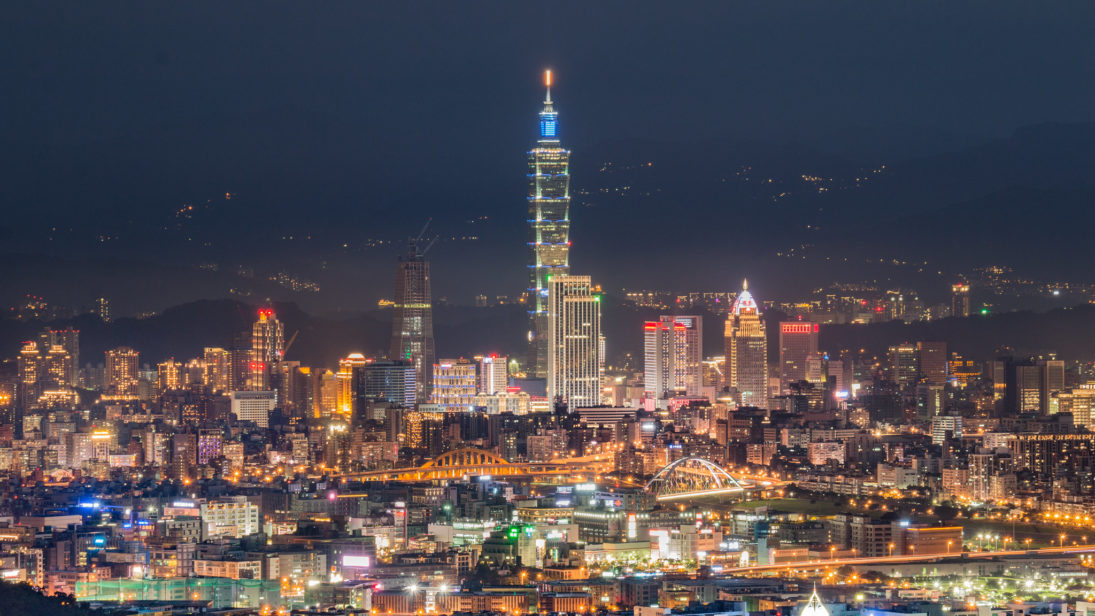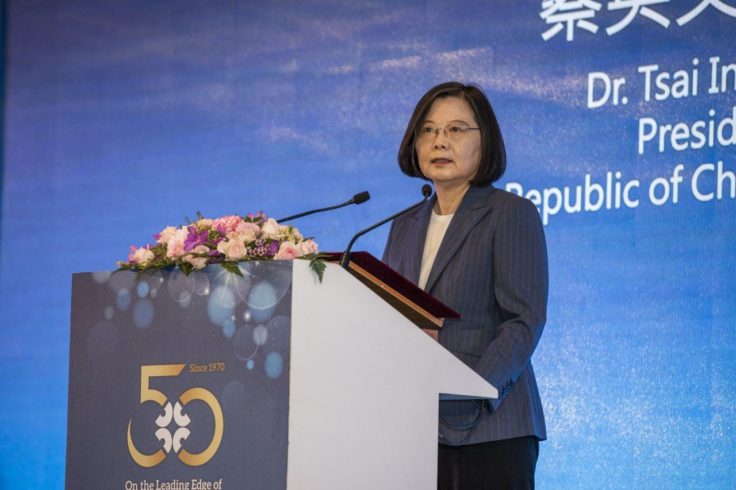
India-Taiwan relations have long been overshadowed by their respective ties with China. Barring some notable exceptions, the relationship has remained dormant over the past few decades. Part of the reason is that India adheres to the One-China policy and despite outstanding differences with China and the latter’s attempts to contain India in the region with the protracted boundary dispute and the China-Pakistan nexus, India’s approach towards Taiwan has been cautious and it has remained apprehensive of China’s reaction to any upgrade in its relationship with Taiwan. Even though India stopped mentioning the One-China policy in joint statements since 2010 and other official documents with China, its decades-old adherence to the policy remains intact. The frequent border standoffs, attempts by China’s leadership to change the status quo, and the controversial China-Pakistan Economic Corridor are convincing enough that China does not take India’s own territorial concerns seriously.
India’s relationship with Taiwan never fully matured and both sides must take responsibility for that while taking corrective steps to elevate their level of engagement and add substance to the relationship. Recent events involving these two countries in their respective strategic equations vis-à-vis China are now driving New Delhi and Taipei closer. It is time for India to have a proactive Taiwan policy that does not let relations with Taiwan get carried away by the India-China binaries.
Evolution of India-Taiwan Relations
India’s establishment of diplomatic ties with the People’s Republic of China (PRC) on April 1, 1950 and attempts to lead by example by forging Asian-African solidarity and the “Bandung Spirit” during the Cold War, caused India to drift away from Taiwan. During much of the Cold War period, there was barely any interaction between the two countries. However, in 1992, India introduced its Look East Policy, and although the focus of the policy was primarily on the Association of Southeast Asian Nations (ASEAN), relations with Taiwan also began to take shape with the opening of the representative offices in New Delhi and Taipei in 1995.
Recent events involving these two countries in their respective strategic equations vis-à-vis China are now driving New Delhi and Taipei closer. It is time for India to have a proactive Taiwan policy that does not let relations with Taiwan get carried away by the India-China binaries.
Interactions between India and Taiwan grew in the early decade of the 2010s, which was marked by high-level parliamentary delegation visits from Taiwan. India and Taiwan inked agreements in the field of education, culture, and trade and investment. In 2019-2020, bilateral trade stood at USD $5.7 billion, and the cumulative investment was USD $1.5 billion by the end of 2018 . Widening and deepening areas of mutual cooperation in the economic realm offers tangible gains for the two countries. For an advanced economy like Taiwan, India presents a huge market and investment opportunity. In the midst of the U.S.-China trade war and the two countries’ separate tensions with China, it is timely for India and Taiwan to reduce their dependence on China and work together for stronger trade and investment ties. This is particularly relevant in the context of the industry captains of Taiwan already weighing their options on shifting their business away from China.
Even before coming into office, Indian Prime Minister Narendra Modi was aware of the potential of engaging Taiwan in the economic sphere. He visited Taiwan in 1999 as the General Secretary of the Bharatiya Janata Party (BJP), and as then Chief Minister of Gujarat, Modi hosted a business delegation from Taiwan in 2011 to attract investments into the state. As prime minister, he invited Ambassador Tien Chung-kwang, former Taiwan representative to India, to his swearing-in ceremony in 2014.
From Taiwan’s side, successive governments and political leaders have also shown willingness to engage with India. Former President Ma Ying-jeou, then Kuomintang (KMT) presidential candidate, visited India in 2007. Current President Tsai Ing-wen also visited India in 2012. In 2017, recalling her India visit during an interaction with Asian correspondents, she even stated, “India left a very deep impression on me.”

New Delhi’s Rethink on Taiwan
With Chinese President Xi Jinping at the helm, China has become more assertive towards Taiwan and with its other neighbors. This impacted India-Taiwan relations, when China began to register protests to their growing bonhomie. For instance, in 2017 China was critical of an all-women Taiwanese parliamentary delegation to India. The Chinese state owned media the Global Times even warned India that it was “playing with fire” by playing the Taiwan card.
After the 2017 Doklam standoff, both India and China began to focus on improving ties by introducing a new mechanism of informal summits. China’s extension of an olive branch with an invitation for Prime Minister Modi to visit Wuhan made the Indian leadership believe that it was their chance to achieve a breakthrough in resolving the boundary dispute. Sensing a conciliatory approach from the Chinese side, New Delhi decided to work towards diffusing tensions with Beijing and put advancing ties with Taipei on hold.
However, amidst the violent standoff between the Indian armed forces and the People’s Liberation Army in and around the Galwan Valley, domestic debate on Taiwan in India is moving beyond the strategic and foreign policy community to mainstream popular discourse. Taiwan’s impeccable response to the COVID-19 pandemic has further generated awareness about Taiwan and in the process, strengthened its positive image worldwide. With less than 500 cases and only seven deaths, Taiwan has stood out globally for its responsible handling of the pandemic.
Taiwan’s performance during the COVID-19 pandemic has also challenged China’s attempts to shrink Taiwan’s role in international space. Calls for India to engage Taiwan from its domestic sphere and China’s continued aggression provide India with an opportunity to rethink its Taiwan policy – not because Taiwan can be used as a “card” against China but because India needs to find new credible partners in East Asia as New Delhi moves away from Beijing. There is merit in engaging Taiwan, a robust democracy with a thriving economy. Taiwan’s COVID-19 response and its exclusion from high-level discussions is a glaring reminder that not giving space to Taiwan in the international community is only depriving countries across the world of an opportunity to benefit from the country’s best practices.
While India has been cautious in expanding economic cooperation and accelerating political ties with Taipei, a rethink in India’s Taiwan policy seems to be underway. It is beginning to take steps although only in bits and pieces. India’s appointment of a seasoned diplomat, fluent in Mandarin, as the Director General of the India-Taipei Association – India’s quasi-embassy in Taiwan – is a case in point. Additionally, two BJP Members of Parliament, Meenakshi Lekhi and Rahul Kaswan, virtually attending the second inauguration ceremony of President Tsai Ing-wen on May 20, 2020.
Calls for India to engage Taiwan from its domestic sphere and China’s continued aggression provide India with an opportunity to rethink its Taiwan policy – not because Taiwan can be used as a “card” against China but because India needs to find new credible partners in East Asia as New Delhi moves away from Beijing.
Under the President Tsai Ing-wen administration, Taiwan is also attempting to expand international cooperation, which could be another opportunity for India. In 2016, the administration introduced its flagship foreign policy initiative, the New Southbound Policy. With this policy, Taiwan is planning to expand cooperation and forge partnerships in areas such economic, people-to-people, resource sharing and regional links. The inclusion of other South Asian countries such as Bhutan, Bangladesh, Nepal, Pakistan, and Sri Lanka in its policy indicates that Taiwan wishes to engage with the entire South Asian region, with India as the lead and key focus.
The Way Forward
Now is an opportune moment for India to advance ties with Taiwan. One way to do this would be for India to devise a consistent and proactive policy towards Taiwan and officially make Taiwan a part of its Act East Policy. As emphasized by Taiwan’s former representative to India and now Deputy Foreign Minister in Taiwan’s Ministry of Foreign Affairs, expanding cooperation with Taiwan in areas such as economic, culture, and education does not conflict with India’s adherence to One-China policy and could parallel India’s ties with China.
It is important for India and other like-minded countries to realize that their respective ties with Taiwan should no longer be held hostage to their China policy. Taiwan’s policies in the Indo-Pacific are aligned with the interests of countries such as India, Australia, Japan, and the United States, and its greater participation will not only be beneficial for Taiwan’s international standing but also for strengthening the idea of the Indo-Pacific. A concerted policy by like-minded countries need to be devised for promoting Taiwan’s participation in the region.
One area that requires substantial attention – and could be improved in the short-term – is people-to-people ties. As India’s Taiwan policy remains limited by its immediate priorities vis-à-vis China, developing robust people-to-people ties is an opportunity for India to maintain momentum and consistency in its Taiwan outreach. For India’s strategic community, emphasizing on these interactions could lead to an annual Track 1.5 dialogue, or other, more consistent, bilateral ties in the future. The significance of Taiwan as a lucrative destination for language training is yet to be sufficiently explored by Indian students and professionals. Indian media outlets may also consider sending correspondents to be stationed in Taiwan so as to generate greater awareness about Taiwan in India. Regular exchanges at the academic, people-to-people, and media levels are mutually beneficial, however, have been neglected in recent years.
India and Taiwan relations have long been understudied, undervalued, and underrated however, there is increasing common ground between the two countries. With the New Southbound Policy, Taiwan has officially expressed the desire to engage India, and it would be a missed opportunity for India if it does not take this moment to meaningfully engage with Taiwan.
***
Image 1: Anko Yeh via Flickr
Image 2: Tsai Ing-wen via Twitter


